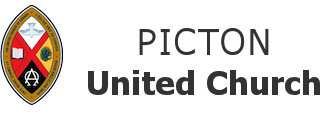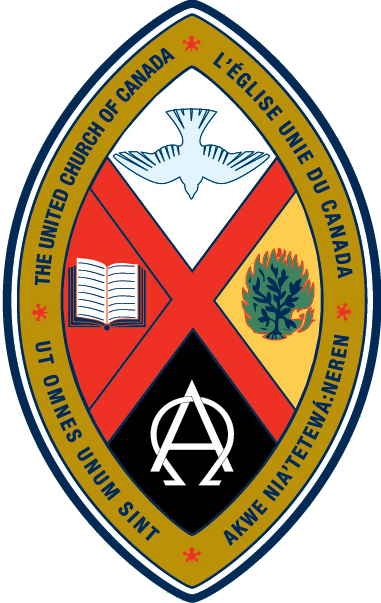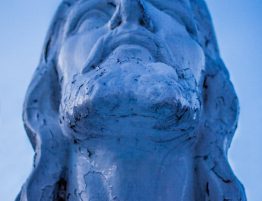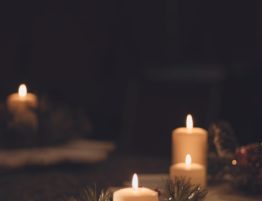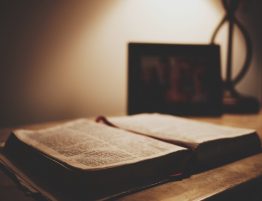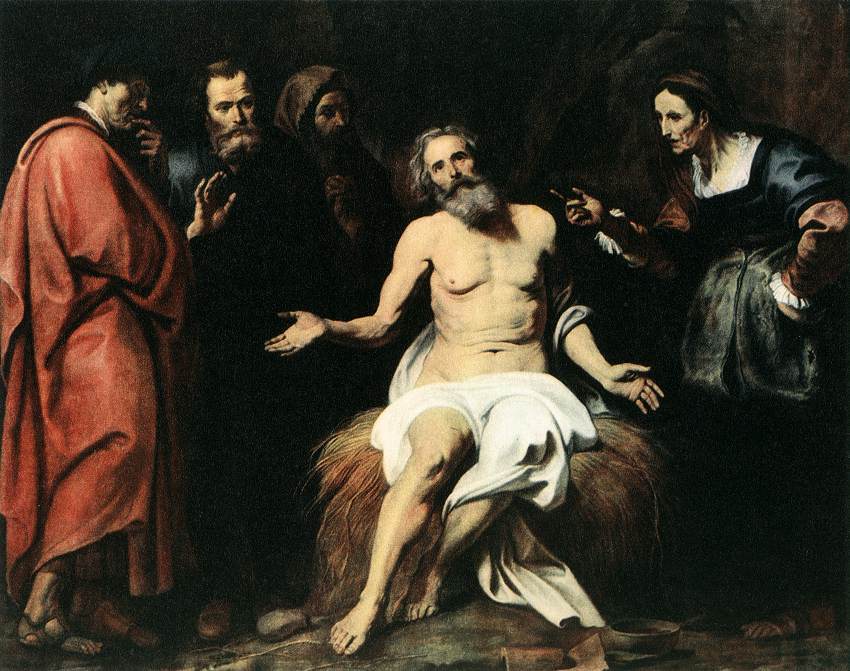
When Bad Things Happen to Good People
I have borrowed this title for my sermon this morning from a book by Rabbi Harold Kushner. Although it was written several decades ago, it is well worth reading. (Perhaps you can find it, on-line, and download it to your Kobo, iPhone, or computer.)
This is a very disturbing circumstance in which we find ourselves. We who live here in The County, our family and friends and fellow citizens of Ontario and Canada, and our entire human family, are facing a situation that has not been faced by others in centuries.
These circumstances are frightening – even terrifying.
Just a matter of weeks ago – back in January – we first heard about the novel corona virus. It was in a remote province of China that most of us had never heard of – in a city called Wuhan. The report took up mere seconds on our newscasts, if it was a slow news day in the unfolding drama of the Impeachment Trial of United States President Donald Trump.
Wuhan City and the novel coronavirus was barely a blip on our radar.
And here we are now just a matter of two months later and Covid-19 – an often-deadly respiratory illness has spread around the world – growing exponentially, it was declared a pandemic by the World Health Organization. The virus moved to South Korea and the Philippines, to Japan, to Italy, Spain, the United Kingdom, France, Brazil, and into the United States and Canada. We know it is even now here in our own County. Now many hundreds of thousands of people are infected.
We find ourselves now locked in a worldwide struggle against this virus. We find ourselves isolating in our homes – keeping social distance from one another – our school classes, church services and most of our businesses closed down, the stock market in free-fall.
As people of faith we are moved to wonder about where God is in the midst of this unprecedented crisis?
There will be some who will say that this Covid-19 situation has occurred because God is trying to teach us something.
Others will say that this plague has been inflicted upon our human family as a punishment for our wickedness.
I want to go on record this morning with a resounding “NO!” to both of these ideas. Mind you, they are not novel ideas – pun intended.
This morning our Gospel reading is a story from the Gospel of John. In this story, Jesus and his disciples, as they travel on foot through the countryside, encounter a man who is blind. We are told that he has been blind since birth. In a time when there were no social programs – long before our welfare state – he was required to beg beside the road – hoping to appeal to the kindness and compassion of passers-by.
As soon as they saw this man, the disciples had questions for Jesus.
“Who sinned?” they said: “This man or his parents, that he was born blind?”
The disciples were convinced that it had to be one or the other. It was simple. One plus one equals two.
People like to keep things simple. It is easier that way. Let’s keep everything neat and tidy and orderly. Questions, after call, cause anxiety. Grey areas cause uncertainty. It is so much simpler to keep things in black and white. It is easier to blame the victim.
The disciples were simply offering conventional wisdom.
Is someone in poverty? They must be lazy.
Is someone ill? What did that person do to cause it? Or maybe their mother or father was to blame?
There is another familiar story in Hebrew Scripture that deals with this theme. It is the story of Job. You might recall that Job was suffering terribly. Job was suffering in every way – his children are all taken from him by a series of accidents and illness; his businesses fail due to natural disasters; his health fails – he is a broken man. In the middle of his suffering Job had several friends who dropped by. After saying nothing at all for several days – they finally gave in to the spewing of conventional wisdom.
To paraphrase, they said something like this:
“Ok Job, it is time to fess up. We know that nothing bad happens without a reason. So just think about it and confess your sin and everything will be alright.” We have an expression in our English language for those who aren’t very helpful to us in times of suffering or trouble – we call them “Job’s comforters”.
Jesus disciples, Job’s friends, and many folk today don’t want to accept that “Stuff Happens”! These folk want to deny that there is randomness in the world. Like that song from the movie: “The Sound of Music” – you may recall it – Captain VonTrapp and Maria singing together:
“Nothing comes from nothing, nothing ever will, somewhere in my youth or childhood, I must have done something good. (or bad!)”
But we read in the gospel story today that Jesus rejects this simple calculus of suffering. Jesus refused to go with conventional wisdom. Jesus stated that neither the blind man, nor his parents, had caused his blindness. Jesus acted out of compassion to give the man the gift of sight.
This morning I want to underline that bad stuff happens in our world because of the brokenness of the world. This is not the world that God had from the beginning in mind. This is not God’s ultimate intention for the world.
In the Book of Genesis, we read of the creation of light and earth and sea and sky and animals and plants and humanity in God’s own image – male and female. And God declared it all to be very good. We read of the original blessedness. We read that God planted a garden in the east – and in the garden placed the human ones: “To till it and to keep it.”
And in the Book of Revelation – and the very end of the Bible – it the last chapter – we read about: “the river of the water of life, flowing through the city – and on either side of the river, the Tree of Life, with its twelve kinds of fruit, bearing fruit each month of the year, and the leaves of the tree are for the healing of the nations.”
Our United Church of Canada Creed proclaims:
“We are not alone; we live in God’s world.
We believe in God: who has created and is creating, who has come in Jesus, the Word made flesh, to reconcile and make new, who works in us and others by the Spirit.
We trust in God.
We are called to be the Church: to celebrate God’s presence, to live with respect in Creation, to love and serve others, to seek justice and resist evil, to proclaim Jesus, crucified and risen, our judge and our hope.
In life, in death, in life beyond death, God is with us. We are not alone. Thanks be to God.”
We believe that God is at work in our world, “in us and others”. God is at work to bring good out of evil. God is at work to bring healing and wholeness – that’s the meaning of the word salvation – to redeem the whole Creation and to restore blessedness.
In the Letter of St. Paul to the Church at Rome, the Apostle wrote:
“In everything, God is at work for good.” Romans 8.28a
This current situation that we face – that faces our entire human family – exists because of the brokenness of our world.
We affirm this morning that God is at work to overcome this randomness and brokenness. God is at work in us and others.
God is at work in the scientists who are labouring around the clock and around the world to find a vaccine for Covid-19.
God is at work in the ways that you and I can reach out to one another to help to bear the burden of loneliness and to bring hope in the midst of despair.
God is at work in us as we isolate at home and keep social distance from one another in order to combat the spread of Covid-19.
God is at work around us in the beauty of spring unfolding – Snowdrops blooming, daffodils and tulips pushing up through winter hardened soil, maple trees producing sap that is boiled to make the ambrosia of maple syrup.
God is at work in the love that we experience in our intimate relationship – and in the daily experience of eating and drinking together around our tables.
I invite you today to look for other ways and other places where God is at work for good in us and others.
Dietrich Bonhoeffer was a Pastor and Theologian of the Confessing Church in the 1930’s and 40’s in Germany. (He gave his all in the struggle to stop Hitler’s Nazism – and was martyred just days before the end of the War in 1945.) Bonhoeffer proclaimed:
“Where we see Jesus Christ, there is God.”
As we read in the gospels, Jesus’ passion was compassion. God’s intention for our world in the compassionate care of each one of us for all our sisters and brothers, for all the world.
In these difficult days and weeks, never forget, even in the darkness and distress of these circumstances – God is with us, we are not alone. God is at work in us and others by the Spirit. In all circumstances, in every situation, God is at work for good.
Thanks be to God!
Amen.
Hymn of Reflection – Voices United #371 “Open My Eyes”
1. Open my eyes, that I may see glimpses of truth thou hast for me; place in my hands the wonderful key that shall unclasp and set me free.
Refrain: Silently now I wait for thee, ready my God thy will to see. Open my eyes, illumine me, Spirit divine!
2. Open my ears, that I may hear voices of truth thou sendest clear; and while the wave-notes fall on my ear, everything false will disappear.
Refrain:
3. Open my mouth, and let me bear gladly the warm truth everywhere; open my heart and let me prepare love with thy children thus to share.
Refrain:
May the Lord bless you and keep you. May the Lord make his face to shine upon you and be gracious unto you. May the Lord lift up his countenance upon you and give you peace.
Amen.
All illustrations, Photos, links used on this website are property of their respective owners
